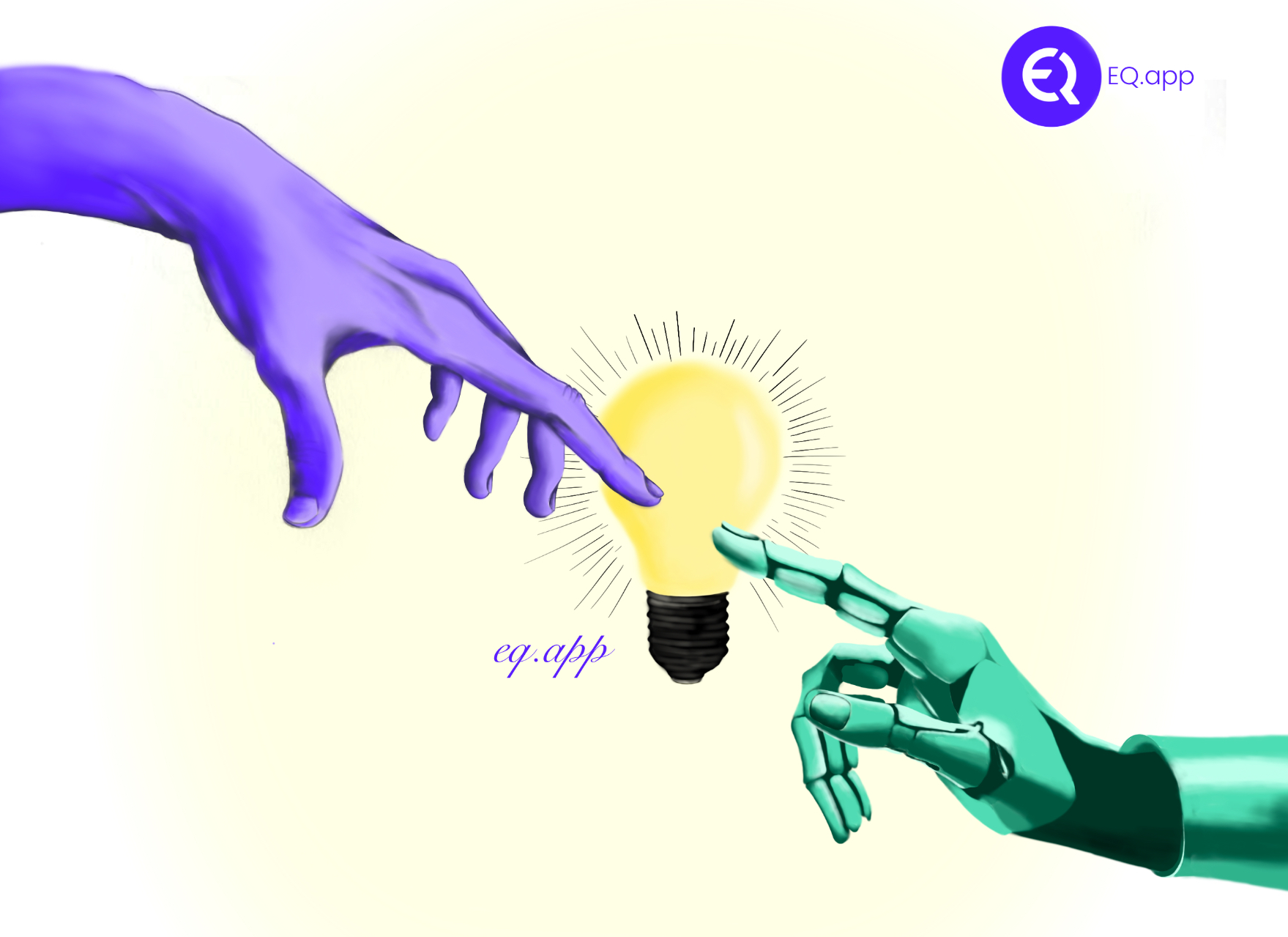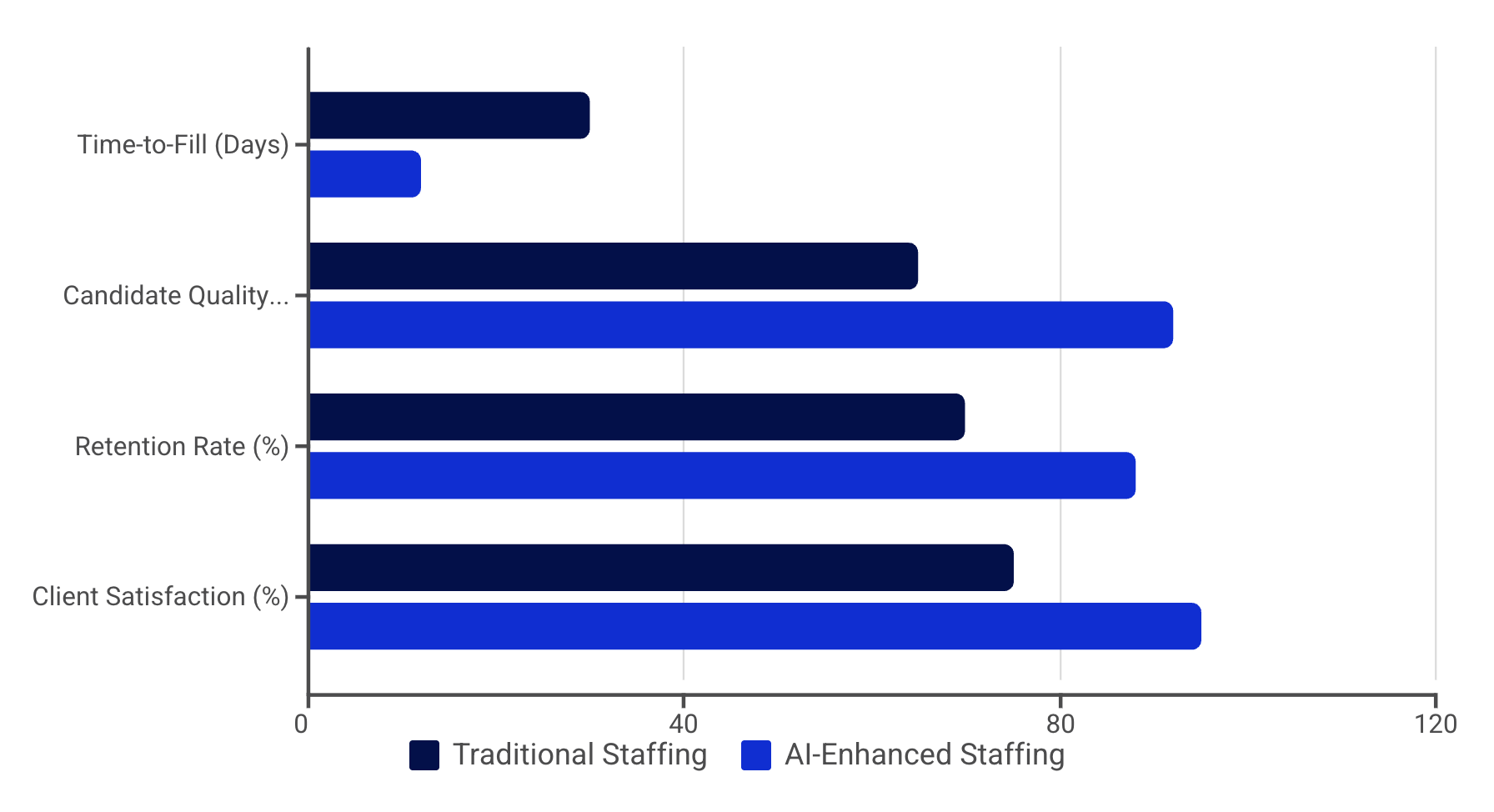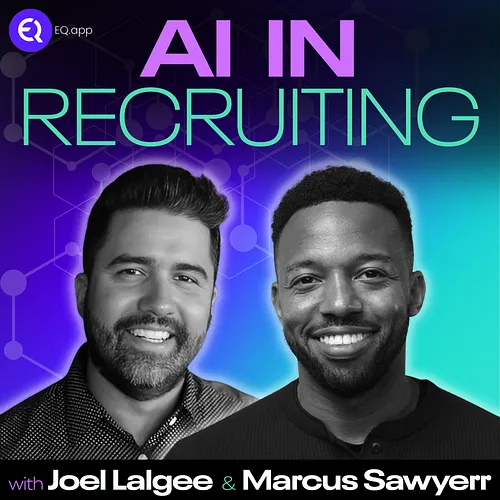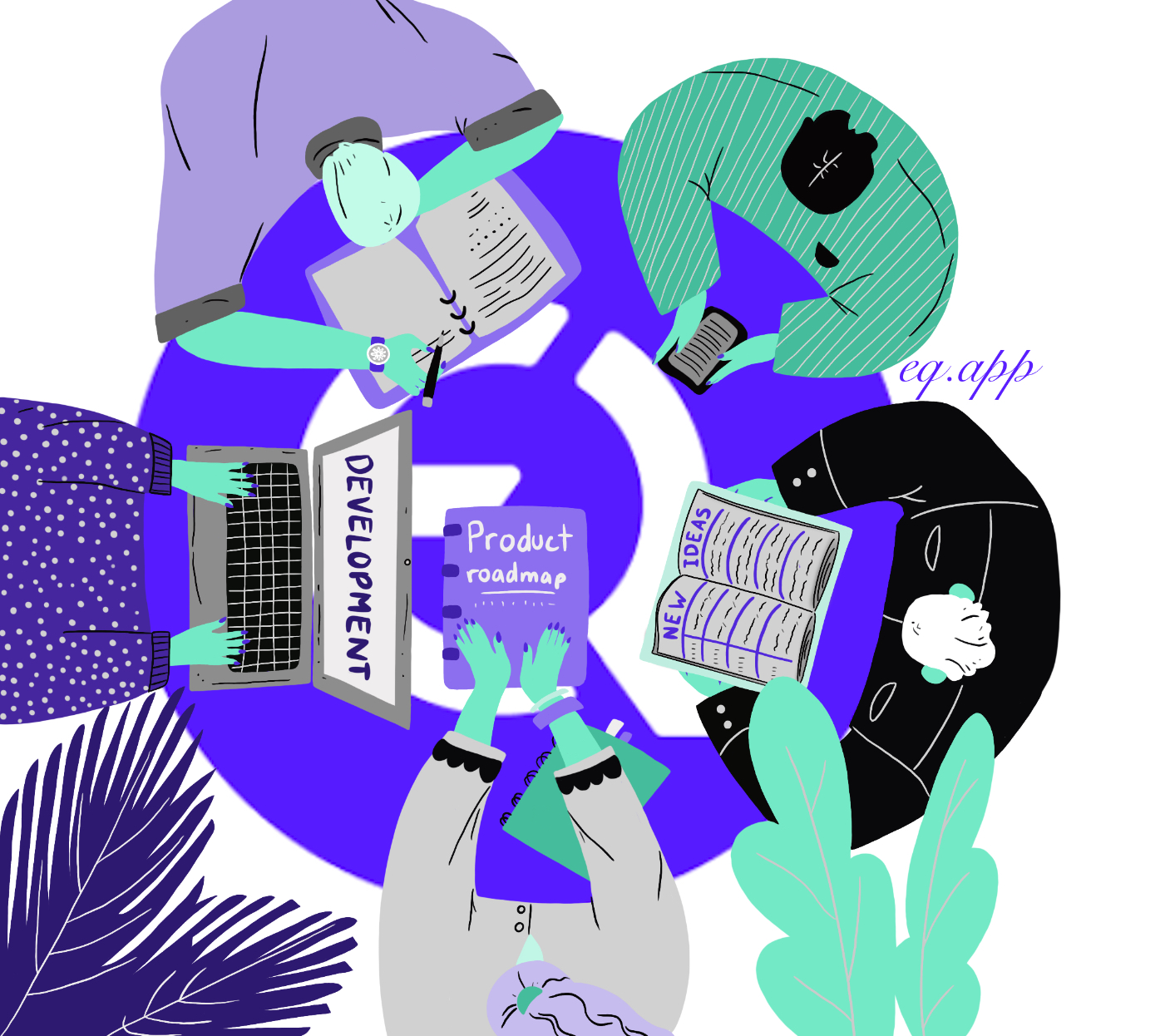EQ.app: Navigating the Great Restructuring
How AI Transforms Staffing and Recruiting Firms into Strategic Partners
Introduction: The Dawn of a New Era
The staffing and recruiting industry stands at a pivotal juncture, confronted by dynamic shifts in the labor market and unprecedented technological advancements that demand profound adaptation. This period is not merely a cyclical downturn but a fundamental redefinition of the employment landscape, often referred to as the "Great Restructuring" [7]. This restructuring is a phenomenon impacting all industries and teams, driven by significant changes in job roles, the emergence of new skill demands, and fundamental shifts in organizational structures. Artificial intelligence (AI) has emerged as a crucial catalyst in this transformation, compelling staffing and recruiting firms to rethink their operational models and strategic positioning within this new reality.
The "Great Restructuring" is partly a consequence of the "2021 hiring boom hangover," which led to structural adjustments in staffing and recruiting levels, as evidenced by major financial institutions undertaking significant workforce reductions.
AI is identified as one of the most impactful forces shaping the labor market today, presenting both immense challenges and unprecedented opportunities. It possesses the potential to automate as many roles as it creates, particularly impacting white-collar, entry-level positions [8]. Despite concerns about job displacement, AI is widely viewed as a powerful solution to enhance overall productivity, foster innovation, and cultivate resilient, inclusive organizational cultures [9].
This period of profound change demands a fundamental adaptation of business models. The challenges confronting staffing and recruiting firms are not temporary fluctuations that will resolve with a market upturn; they represent a permanent, technology-driven redefinition of work [4]. Consequently, firms cannot simply wait for the market to recover; they must fundamentally transform their services and internal operations to align with this new, AI-shaped reality. Failure to adapt risks long-term obsolescence rather than merely short-term downturns.
Competitive Imperative
The rapid AI adoption among HR professionals, reaching 72% by 2025 [2], creates an urgent, two-pronged competitive imperative for staffing firms: internal efficiency and external client relevance. If clients are aggressively integrating AI into their hiring processes, staffing firms that lag in AI adoption will inevitably be perceived as less efficient, technologically outdated, and potentially incapable of meeting modern, AI-driven hiring demands.
This situation is not solely about internal operational gains for staffing and recruiting firms; it is critically about maintaining their competitive edge and relevance in their client relationships. A delay in AI adoption specifically within the recruitment industry poses a substantial strategic risk, as it widens the gap between what clients expect and what traditional firms can deliver.

"The Great Restructuring isn’t theoretical, it’s already here in the day-to-day of hiring. Founding recruiters and talent operators are being asked to build faster, smarter, and leaner teams with fewer resources and higher expectations. AI isn’t a silver bullet, but when embedded thoughtfully, it lets us scale precision, not just process. The real shift is moving from reactive recruiting to architecting systems that anticipate business needs before they hit the org chart.”
Section 1: The Great Restructuring – Reshaping the Future of Work
The fundamental nature of work is undergoing continuous transformation, with established job roles being redefined and critical skill requirements evolving at an unprecedented pace. This pervasive change, often termed the "Great Restructuring," is driven significantly by the accelerating integration of AI into the workplace. While this restructuring impacts all teams and industries, our focus is on how it reshapes the talent landscape and, by extension, the staffing and recruiting sector's role.
Defining the "Great Restructuring": Job Evolution, Skills Gaps, and Market Shifts
AI is actively reshaping the career ladder, placing many entry-level roles at increasing risk of automation. For instance, AI could automate over 50% of tasks performed by market research analysts and sales representatives, a significantly higher percentage compared to their managerial counterparts [8]. While AI and advanced information processing technologies are projected to create 170 million new jobs, they are simultaneously expected to displace 92 million existing ones, resulting in a net job gain but profound structural changes in the labor market [8].
A critical "expertise gap" is widening, driven by a large segment of the workforce nearing retirement and technological disruptions that limit opportunities for new employees to develop specialized knowledge. This situation creates a paradoxical and potentially critical talent pipeline crisis. On one hand, a significant shortage of experienced talent is looming due to mass retirements. On the other hand, AI is reducing the traditional entry points for new talent to gain that crucial experience. This implies a future crisis where the pipeline for developing future experts is severely constrained.
A staggering 40% of current professional skills are anticipated to become obsolete within the next five years [6], and 63% of employers identify pervasive skills gaps as a significant impediment to growth through 2030 [6]. In response to these dynamics, organizations are undergoing transformative restructuring initiatives to enhance agility and responsiveness within a rapidly evolving technological landscape.

"AI is going to create thousands of new jobs while making some existing ones obsolete. AI is an enabler not a replacer. Those who embrace the moment will succeed, companies who learn to harness AI properly and invest in reskilling their workforce will excel and those who don't will miss the moment."
Impact on Traditional Staffing and Recruiting Models and the Need for Adaptation
Traditional staffing and recruiting models, historically focused on rapidly filling open positions, are facing significant challenges. Companies are increasingly reducing their reliance on contingent work due to tighter budgets and rising unemployment rates [4]. The core value proposition of staffing and recruiting firms must evolve beyond merely finding qualified candidates quickly. It must shift towards becoming a "real partner" in their clients' businesses, assisting them in building resilient teams capable of navigating future uncertainties.

"AI is not replacing the workforce — it's reshaping it. As automation takes over repetitive tasks, staffing trends are shifting toward human strengths like creativity, critical thinking, and emotional intelligence. Our members are starting to see a decline in client demand for roles focused on routine, process-driven work. Instead, there's growing emphasis on adaptable, tech-savvy staff who can operate in leaner teams. Everyone is being asked to do more with less, and the workplace is evolving into a more agile, skills-focused environment where continuous learning is key."
The confluence of the "expertise gap" and AI's impact on entry-level jobs creates a critical talent pipeline crisis. This implies a future where the pipeline for developing future experts is severely constrained. Staffing and recruiting firms, as strategic talent advisors, must proactively address this by guiding clients on robust internal upskilling and reskilling programs and exploring innovative models for AI-assisted apprenticeship or AI-driven skill development to nurture talent through alternative, accelerated pathways. This represents a critical, high-value advisory role for staffing and recruiting firms.
The shift from "filling open spots" to "strategic partnership" mandates that staffing and recruiting firms become experts in future job design and workforce transformation, moving beyond reactive fulfillment to proactive strategic consulting. This means staffing and recruiting firms must develop a deep understanding of AI's implications for their clients' long-term workforce needs. They must evolve to advise on skills-based hiring [5], internal mobility strategies, and even the fundamental redesign of job roles. This requires a significantly deeper level of engagement and a comprehensive understanding of their clients' overarching business strategies, transforming them into indispensable strategic consultants rather than just transactional vendors.

EQ.app: Strategically building and restructuring in the modern workforce
The shift from "filling open spots" to "strategic partnership" mandates that staffing and recruiting firms become experts in future job design and workforce transformation, moving beyond reactive fulfillment to proactive strategic consulting. This means staffing and recruiting firms must develop a deep understanding of AI's implications for their clients' long-term workforce needs. They must evolve to advise on skills-based hiring, internal mobility strategies, and even the fundamental redesign of job roles. This requires a significantly deeper level of engagement and a comprehensive understanding of their clients' overarching business strategies, transforming them into indispensable strategic consultants rather than just transactional vendors.
Section 2: From Staffing and Recruiting Firm to Strategic Partner – The AI Imperative
In the current landscape, the role of staffing and recruiting firms is undergoing a profound transformation, moving beyond mere transactional placements to becoming indispensable strategic partners. This evolution is not optional but a critical imperative for survival and growth in the AI age.
Why Strategic Partnership is Non-Negotiable in the AI Age
The intensely competitive and rapidly evolving market landscape dictates that staffing and recruiting firms must transcend their traditional transactional roles to become indispensable strategic partners. This strategic evolution is critical for effectively navigating pervasive workforce disruptions, economic uncertainties, and the accelerating advancement of AI technologies.
Strategic staffing and recruiting augmentation, which involves the tactical deployment of temporary or contract professionals, has emerged as a "critical competitive advantage" for companies grappling with acute talent gaps and the urgent need for specialized, AI-fluent talent [15]. To maintain relevance and value, staffing and recruiting firms must embrace continuous evolution, proactively adopting new technologies, refining their internal processes, and keenly listening to their clients' evolving needs and values [12].


"This era isn't just about workforce disruption, it's about leadership transformation. AI is forcing organizations to rethink not only how they hire, but how they operate. The winners in this shift will be those who build cultures that embrace experimentation, flatten hierarchies, and empower teams to move fast with clarity."
How AI Enables This Evolution: Beyond Transactional, Towards Advisory
AI fundamentally transforms the recruitment landscape by enabling highly efficient processes, such as automated resume screening and AI-driven candidate engagement [13]. This can lead to a remarkable 50% reduction in recruitment time and significant savings in hiring costs [13]. By automating repetitive, high-volume administrative tasks, AI liberates internal teams, allowing them to redirect their focus towards higher-value activities, including deepening client relations and pursuing strategic growth initiatives. This directly facilitates the crucial shift from a transactional to a strategic operational model.
The current recruitment landscape is often chaotic, demanding, and overwhelming, pushing even the most skilled professionals to their limits. AI isn't just about efficiency; it's about alleviating this very real burden.
To truly understand the challenges, we invite you to experience a glimpse of "Recruiter Overwhelm" firsthand. Watch our demo to see what recruiters are up against every day.
Recruiter Overwhelm: How AI streamlines recruitment tasks
AI-powered solutions provide actionable, data-driven information that enhances both client and candidate engagements. This includes generating tailored prompts for client intake meetings or crafting personalized pitches for candidates [14]. AI enables sophisticated predictive analytics, allowing firms to accurately forecast hiring trends, identify emerging market gaps, and proactively anticipate client needs [12]. This forward-looking approach significantly strengthens client trust and positions the firm as a proactive advisor. The full success of AI solutions in staffing and recruiting is contingent upon their seamless integration with existing systems like ATS and CRM [25]. This interoperability ensures maximum efficiency and unlocks AI's full potential without disrupting established workflows.
The AI imperative for staffing and recruiting firms is not merely about internal AI adoption, but strategically leveraging AI to demonstrate and deliver expertise in AI-driven workforce transformation to their clients. Companies struggle to find talent that understands and can effectively apply AI. If staffing firms rigorously use AI internally to optimize their own processes and gain a deep understanding of market trends, they build unparalleled credibility. This internal mastery allows them to confidently advise clients on their own AI adoption strategies and evolving talent needs. The internal application of AI thus becomes a powerful proof point for their strategic value, enabling them to offer "access to AI-fluent candidates" and provide "agility without long-term commitment" [15]. This transforms their role from a simple vendor to a trusted, expert advisor on complex AI-driven workforce strategies.
The perceived "cost" of utilizing staffing and recruiting services can be strategically reframed as an "investment in agile, AI-driven talent acquisition and strategic workforce planning." While it may appear cheaper to hire independently, strategic staffing and recruiting augmentation is a "critical competitive advantage" for bridging talent gaps and rapidly accessing specialized AI talent [15]. By leveraging AI to deliver "pre-vetted, project-ready talent in days" and manage costs with precision, staffing and recruiting firms can demonstrably prove that their AI-enhanced service offers a superior Return on Investment (ROI) in terms of speed, quality, and flexibility. This redefines their value proposition, shifting the client's perception from a simple operational cost to a strategic investment that delivers tangible, competitive advantages in a dynamic market.
The transition to strategic partnership necessitates a fundamental shift in the type of data staffing and recruiting firms collect and analyze, moving from historical placement metrics to predictive, forward-looking market intelligence. AI's capability to forecast hiring trends and identify market gaps represents a significant qualitative leap from merely tracking past placements or responding to current requisitions [12]. To truly function as a strategic partner, firms must anticipate client needs before they are explicitly articulated. This requires sophisticated, AI-driven analysis of broader economic indicators, emerging industry shifts, and evolving skill demands. This proactive, data-driven foresight is the distinguishing factor that elevates a firm to an advisory role, enabling them to proactively suggest solutions and shape talent strategies rather than simply react to immediate requests.


"We're witnessing a generational shift in how work gets done. AI isn't just a solution; it's becoming the infrastructure for modern business. The companies that thrive won't be the ones that resist change, but those that reimagine how people and technology collaborate to unlock productivity, creativity, and opportunity at scale."
AI's Role in Transforming Staffing and Recruiting Firms
AI is not just a tool for efficiency; it is a transformative force that can redefine the very essence of staffing and recruiting firms. By embracing AI, these firms can enhance their operational models, improve client relationships, and ultimately drive better outcomes for both candidates and clients.
The integration of AI into staffing and recruiting practices is not merely about technology; it is about a fundamental shift in how these firms operate, engage with clients, and deliver value in a rapidly changing landscape.

Human and AI collaboration: Igniting new ideas and solutions
Section 3: Operational Excellence with AI – The 3 C's Framework
Achieving operational excellence in the modern staffing and recruiting industry hinges on the strategic application of AI across three critical dimensions: Candidates, Clients, and Colleagues. This "3 C's" framework provides a holistic approach to leveraging AI for transformative impact.
3.1 Candidates: Revolutionizing Talent Acquisition
AI is fundamentally reshaping how staffing and recruiting firms identify, engage, and place talent, moving beyond traditional, labor-intensive methods to highly efficient and precise processes.
AI-powered Sourcing: Expanding Reach and Identifying Hidden Talent
AI agents empower staffing and recruiting agencies to search across significantly broader and more diverse candidate pools, rapidly scanning job boards, social platforms, and vast internal databases in mere seconds [16]. AI candidate sourcing capabilities make it considerably easier to identify both active job seekers and passive candidates (those not actively searching but open to opportunities), by searching extensive online sources beyond conventional channels [10].
Advanced AI agents can meticulously evaluate work history, growth patterns, and career trajectories to surface highly suitable candidates who might remain undiscovered through traditional keyword-based Boolean searches [10]. AI can comprehensively analyze resumes, social media profiles, and other data points to provide recruiters with a highly relevant and precise list of potential candidates.
Intelligent Screening & Matching: Enhancing Precision, Reducing Bias, Improving Candidate Experience
AI screening significantly enhances the candidate experience by accelerating the hiring process, actively reducing bias, and ensuring fair and consistent assessments [13, 22]. AI-driven systems leverage sophisticated machine learning algorithms, data analysis, and Natural Language Processing (NLP) to analyze resumes at scale, contextually understand job descriptions, and automatically score and rank candidates based on fit [13].
This leads to demonstrably enhanced accuracy in shortlisting, a dramatically faster time-to-hire (reducing cycles from weeks to mere days) [13], and a fairer, more objective selection process by minimizing human biases [13, 22]. AI possesses the capability to identify strong candidates who might otherwise be overlooked, including those with non-traditional career paths, by intelligently mapping their career trajectories. To further mitigate bias, AI can anonymize candidate details, enabling truly blind screening processes [22].
Predictive job matching utilizes machine learning to assess comprehensive compatibility between candidates and open positions, analyzing not just keywords but also skills, experience, personality traits, and performance indicators [17]. It can even predict future job performance and cultural fit [17]. Crucially, AI has been shown to reduce racial/ethnic bias in hiring processes, contributing to more equitable outcomes [17].
Automated Engagement & Scheduling: Boosting Efficiency and Personalization
AI agents are capable of managing thousands of candidate interactions simultaneously [11]. AI-powered chatbots provide real-time responses, while personalized email sequences can effectively nurture passive candidates, significantly boosting engagement and reducing drop-off rates [13]. Integrated AI chatbots and virtual assistants automate highly repetitive tasks such as responding to candidate inquiries and scheduling interviews, thereby substantially enhancing recruiter productivity [13, 16].
Automated interview scheduling is rapidly gaining widespread adoption, with candidates across all levels increasingly preferring the convenience and efficiency it offers [20]. AI can also generate candidate-specific interview questions and synthesize feedback from multiple interviewers into comprehensive summaries. EQ.app's AI agents are specifically designed to streamline sourcing, screening, and scheduling, directly fulfilling the "Zero Admin" mission for staffing and recruiting firms.
AI's ability to "democratize access to jobs" [18] serves as a direct, powerful counter-measure to the looming "talent pipeline problem" and the intensifying "expertise gap". While AI is often associated with job displacement, particularly for entry-level roles, the evidence also highlights its capacity to make roles requiring specialized skills more accessible by facilitating easier acquisition of technical knowledge. Furthermore, AI's unbiased screening capabilities and its ability to identify "hidden talent" from diverse and non-traditional sources can significantly broaden the talent pool [13]. This implies that AI can proactively mitigate the expertise gap by identifying, assessing, and nurturing talent from previously overlooked pathways, thereby democratizing opportunity and enriching the overall talent pipeline for the future workforce.
The accelerating shift to "skills-based hiring" is not merely a progressive trend, but a necessary and inevitable evolution driven by AI's analytical capabilities and the demands of the "Great Restructuring." AI excels at analyzing and matching candidates based on their underlying skills, competencies, and career trajectories, moving beyond rigid job histories or simple keyword matching [21]. This capability is perfectly aligned with the "Great Restructuring," where skills are rapidly evolving and becoming obsolete [6]. By focusing on skills, AI enables a more agile, adaptable, and future-ready workforce, ensuring better alignment between evolving job requirements and actual talent capabilities. Staffing and recruiting firms that proactively leverage AI for skills-based matching will be uniquely positioned to serve clients undergoing significant job architecture transformations.
Optimizing the "candidate experience" is not a mere soft benefit but a critical strategic imperative for attracting and retaining top talent in an increasingly AI-driven and competitive market [19]. With AI automating initial interactions, candidates now expect faster feedback, more transparent processes, and highly personalized engagement. A positive, AI-driven experience—characterized by quick application processes, self-scheduling options, and clear communication regarding outcomes—can significantly differentiate a staffing and recruiting firm in a crowded market. In an environment where "candidates want fairness" [22] and are increasingly comfortable with AI, a seamless, bias-reduced AI experience becomes a pivotal factor in talent attraction and retention, directly impacting the quality and diversity of talent a firm can consistently deliver to its clients.

"AI's growing impact means the future of work is less about automation replacing jobs, and more about a dynamic co-existence, where human intelligence and artificial intelligence will work to enhance one another, both having equal parts to play in the workforce of tomorrow."
3.2 Clients: Elevating Service and Partnership
AI is not only transforming how staffing and recruiting firms find and engage candidates, but also how they serve and partner with their clients. By leveraging AI to enhance service delivery, provide data-driven insights, and build stronger relationships, staffing firms can elevate their value proposition and become indispensable strategic partners.
Enhanced Client Intake & Needs Analysis: Precision and Proactivity
AI-powered solutions can analyze client data, market trends, and industry insights to generate tailored prompts for client intake meetings, ensuring that recruiters ask the right questions and gather comprehensive information about client needs [14]. AI can also analyze historical data to identify patterns and predict future hiring needs, enabling staffing and recruiting firms to proactively offer solutions and position themselves as strategic advisors.
By leveraging AI to enhance client intake and needs analysis, staffing and recruiting firms can move beyond reactive fulfillment to proactive strategic consulting, building stronger relationships and delivering greater value to their clients.
Data-Driven Insights & Reporting: Transparency and Accountability
AI can analyze vast amounts of data to provide clients with actionable insights into talent availability, market trends, and compensation benchmarks [12]. AI-powered reporting solutions can generate customized reports that track key metrics, measure performance, and demonstrate the value of staffing and recruiting services.
By providing clients with data-driven insights and transparent reporting, staffing and recruiting firms can build trust, demonstrate accountability, and strengthen their partnerships.
Personalized Communication & Engagement: Building Stronger Relationships
AI-powered solutions can personalize communication with clients, tailoring messages to their specific needs and interests [14]. AI chatbots can provide real-time support and answer client inquiries, freeing up recruiters to focus on more strategic conversations.
By personalizing communication and engagement, staffing and recruiting firms can build stronger relationships with their clients and foster greater loyalty.
The strategic application of AI is not merely about automating tasks, but fundamentally about elevating the level of service and partnership that staffing and recruiting firms can offer their clients. By leveraging AI to enhance client intake, provide data-driven insights, and personalize communication, staffing and recruiting firms can become indispensable strategic partners, helping their clients navigate the complexities of the modern talent landscape and achieve their business goals.

AI-Enhanced Staffing significantly outperforms Traditional Staffing across all key performance metrics
3.3 Colleagues: Empowering Recruiters with AI
AI is not intended to replace recruiters, but to empower them with the resources they need to be more efficient, effective, and strategic. By leveraging AI to automate repetitive tasks, providing data-driven insights, and enhancing communication, AI can free up recruiters to focus on higher-value activities and build stronger relationships with candidates and clients.
Automating Repetitive Tasks: Freeing Up Time for Strategic Activities
AI can automate many of the repetitive tasks that consume recruiters' time, such as sourcing candidates, screening resumes, scheduling interviews, and sending follow-up emails [13, 16]. This frees up recruiters to focus on more strategic activities, such as building relationships with candidates and clients, understanding their needs, and providing personalized solutions.
Providing Data-Driven Insights: Enhancing Decision-Making
AI can analyze vast amounts of data to provide recruiters with actionable insights into talent availability, market trends, compensation benchmarks, and candidate performance [12]. This helps recruiters make more informed decisions, identify the best candidates for each role, and negotiate competitive compensation packages.

"Across industries, from consumer products to space exploration, AI is accelerating insight and innovation. The next generation of leaders will have the advantage of efficiency, which will make more time for creativity and lead to charting entirely new frontiers."
Enhancing Communication: Building Stronger Relationships
AI-powered solutions can personalize communication with candidates and clients, tailoring messages to their specific needs and interests [14]. AI chatbots can provide real-time support and answer inquiries, freeing up recruiters to focus on more strategic conversations.
The key to successfully integrating AI into the staffing and recruiting industry is to focus on empowering recruiters, not replacing them. By providing recruiters with the resources they need to be more efficient, effective, and strategic, staffing firms can unlock the full potential of AI and deliver better results for their clients and candidates. This requires a commitment to training and development, as well as a willingness to embrace new technologies and processes.
Section 4: EQ.app - Addressing Core Recruitment Challenges with Innovation
At EQ.app, our foundation is built on deep, firsthand experience within the recruitment sector. Our founder, Marcus Sawyerr, is a veteran of the staffing and recruiting industry with a profound understanding of its evolution and challenges. He deeply understands the persistent administrative burdens faced by recruitment professionals, and the critical challenge of efficiently connecting with the most relevant clients and top-tier candidates. This understanding ignited our core mission: to achieve Zero-Admin™. We firmly believe the future of recruitment lies not in replacing human expertise, but in empowering it. This philosophy underpins our commitment to providing AI solutions for recruiters, by recruiters.


"Opportunity is universal, but access is not — we're here to change that, one system at a time."
Our journey began with a practical, hands-on approach. Rather than merely theorizing about AI's potential, we built and refined solutions within our own tech-driven recruitment firm. This real-world application, continually informed by a vibrant community of over 20,000 professionals on our Substack, demonstrated that AI could significantly reduce administrative tasks, dramatically boosting operational efficiency. These proven insights have been distilled into integrated AI products designed to equip every staffing firm with advanced capabilities typically reserved for larger enterprises, moving beyond fragmented "point solutions" to comprehensive, effective strategies that truly solve problems.
We recognize the constant pressure businesses face to not just fill roles, but to strategically connect with the most promising clients and ideal candidates in an increasingly competitive landscape. Identifying those precise matches, the ones that truly drive business growth, often presents a significant hurdle.
Introducing EQ.ICP: Facilitating Strategic Connections and Business Insights
We are introducing EQ.ICP, an innovative solution designed to directly address these pivotal challenges. EQ.ICP provides businesses with high-quality client and candidate leads, leveraging advanced AI to identify and facilitate connections with the most relevant individuals. Furthermore, EQ.ICP offers comprehensive business insights on companies, including recent news, local business data, and key contact details, ensuring that outreach is always informed and strategic. This capability transforms traditional business development into a precise, AI-driven process for strategic engagement.
EQ.ICP Demo: Streamlining client and candidate connections with AI
Businesses seeking to unlock a new level of strategic connection and operational efficiency are invited to join the waitlist for early access to EQ.ICP.
90 Day Pioneer Program: Accelerating AI Integration and Growth
To empower staffing and recruiting firms in rapidly adopting AI and transforming their operations, EQ.app offers its structured 90 Day Pioneer Program. This comprehensive solution provides a clear implementation roadmap, helping new and established firms seamlessly integrate AI into their recruitment workflows and identify new opportunities for growth. With dedicated 24/7 AI support and expert guidance, the program focuses on three key areas: advanced AI-powered candidate matching for higher placement success, streamlined client management through automated communication, and overall operational efficiency to accelerate screening, placement, and onboarding processes. Available in various packages, the Pioneer Program is designed to equip staffing and recruiting firms with the competitive advantages needed to thrive in the AI-driven talent landscape.
90 Day Pioneer Program: A roadmap for AI integration and growth
Beyond our solutions, EQ.app is dedicated to fostering a community of informed talent professionals. Our podcast, "AI in Recruiting," hosted by Joel Lalgee and Marcus Sawyerr, serves as a vital resource for navigating the evolving landscape of AI and hiring. We delve into practical applications, strategic insights, and future trends, covering topics from AI-driven sourcing and screening to its impact on diversity, equity, and inclusion, and the overall candidate experience. This platform offers real-world perspectives and bold predictions to help recruiters, HR leaders, and founders stay ahead in the AI-powered talent acquisition space.

AI in Recruiting Podcast: Insights from Joel Lalgee and Marcus Sawyerr
Section 5: Challenges and Considerations
While AI offers tremendous opportunities for the staffing and recruiting industry, it's important to acknowledge the challenges and considerations that come with adopting these technologies.
Data Privacy and Security
AI systems rely on vast amounts of data, which raises concerns about data privacy and security. Staffing and recruiting firms must ensure that they are collecting, storing, and using data in a responsible and ethical manner, and that they are complying with all applicable data privacy regulations [23].
Bias and Fairness
AI systems can perpetuate and amplify existing biases if they are trained on biased data [22, 23]. Staffing and recruiting firms must be vigilant about identifying and mitigating bias in their AI systems, and they must ensure that their AI systems are fair and equitable to all candidates [22].
Ethical Considerations
AI systems can be used to make decisions that have a significant impact on people's lives, such as who gets hired, who gets promoted, and who gets laid off [23, 24]. Staffing and recruiting firms must ensure that their AI systems are used in an ethical and responsible manner, and that they are not used to discriminate against any group of people [22, 23].
Transparency and Explainability
AI systems can be complex and opaque, making it difficult to understand how they make decisions. Staffing and recruiting firms must strive to make their AI systems more transparent and explainable, so that candidates and clients can understand how decisions are being made and why [23].
Addressing the challenges and considerations associated with AI adoption is not merely about mitigating risks, but about proactively shaping a future where AI serves as a force for good in the staffing and recruiting industry. By prioritizing data privacy, mitigating bias, ensuring ethical use, and promoting transparency, staffing and recruiting firms can build trust with candidates and clients, and unlock the full potential of AI to create a more efficient, effective, and equitable talent ecosystem.
Conclusion: Embracing the AI-Powered Future of Staffing and Recruiting
The staffing and recruiting industry stands at the cusp of a new era, one defined by the transformative power of Artificial Intelligence [1]. As we navigate the "Great Restructuring," which is fundamentally reshaping teams and work across all sectors, it is clear that AI is not merely a technological add-on, but a fundamental force redefining the very nature of employment.
For staffing and recruiting firms, the path forward lies in embracing AI as a strategic imperative. By transforming from traditional placement agencies to strategic partners, firms can leverage AI to deliver unprecedented value to their clients, empower their recruiters, and unlock new opportunities for growth.
EQ.app is committed to helping staffing and recruiting firms navigate this transformation, by providing them with the AI-powered solutions they need to thrive in the AI age. We believe that AI has the potential to create a more efficient, effective, and equitable talent ecosystem, and we are excited to be at the forefront of this revolution.
As we look to the future, we are confident that AI will continue to play an increasingly important role in the staffing and recruiting industry. By embracing AI and adapting to the changing landscape, staffing and recruiting firms can position themselves for success in the years to come.

EQ.app: Collaborating to shape the AI-powered future of staffing and recruiting
Works Cited
1. www.staffingindustry.com, accessed June 5, 2025
2. AI adoption among HR professionals rises to 72%, accessed June 5, 2025
3. AI's Impact on staffing agencies: Key Trends for 2025 - Byner, accessed June 5, 2025
4. Navigating Change: Why Staffing Firms Still Matter in a Cost-Consious Market, accessed June 5, 2025
5. Designing a Future-Ready Job Architecture Framework - Korn Ferry, accessed June 5, 2025
6. Future of Work Trends 2025: Strategic Insights for CHROs - Gartner, accessed June 5, 2025
7. The Great Staffing Correction: Understanding the Current Layoff Wave, accessed June 5, 2025
8. Is AI closing the door on entry-level job opportunities? | World ..., accessed June 5, 2025
9. How AI is transforming the future of staffing and recruitment industry, accessed June 5, 2025
10. AI Agents for Recruiting: A Guide for Hiring Teams - SeekOut, accessed June 5, 2025
11. Mandate for HRs - Learn about Agentic AI in HR - Lyzr AI, accessed June 5, 2025
13. AI in Recruitment - Ultimate Guide for Agencies and In-House Teams - Carv, accessed June 5, 2025
14. AI in Talent Management: 5 Ways to Optimize HR Workflows - Virtasant, accessed June 5, 2025
16. AI Agents for Staffing Agencies: Scale Smarter & Faster - iSmartRecruit, accessed June 5, 2025
17. Predictive Job Matching: Definition, Types, Examples & Applications - X0PA AI, accessed June 5, 2025
19. How AI is Changing the Candidate Experience - Talentlyft, accessed June 5, 2025
20. The Rise of Automated Interview Scheduling - HireVue, accessed June 5, 2025
21. Skills-Based Hiring: Definition, Benefits and How-to - Betterteam, accessed June 5, 2025
22. AI in staffing: Candidates want fairness, accessed June 5, 2025
23. Artificial intelligence and the future of work: What do we know?, accessed June 5, 2025
24. How AI Could Promote—or Undermine—Ethical HR, accessed June 5, 2025
25. How is Artificial Intelligence Used in Human Resources?, accessed June 5, 2025